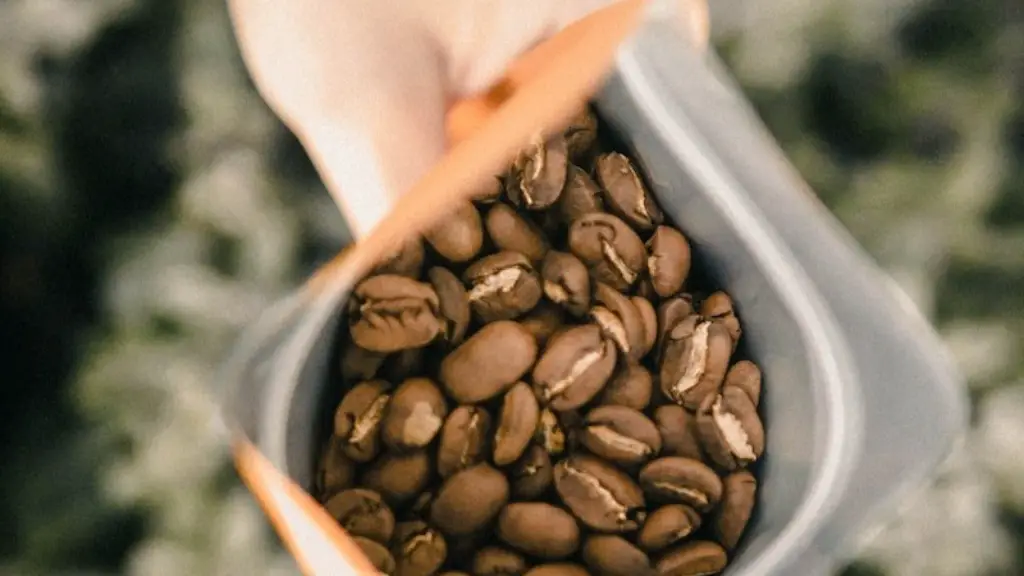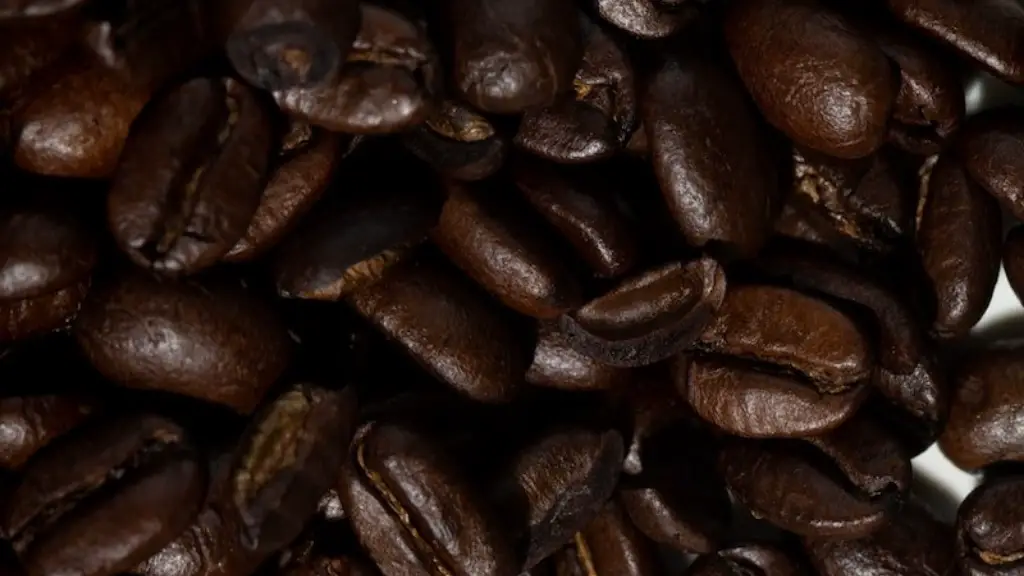Coffee is one of the world’s most popular beverages, consumed every day by millions of people around the globe. But what if you find an old bag of coffee beans or grounds on your shelf and wonder if it’s safe to drink? When is coffee considered too outdated to be consumed? Is it still safe to drink?
One of the most important factors to consider when assessing coffee’s drinkability is how it’s been stored. Coffee should be stored in an airtight container at room temperature. If the coffee beans or grounds have been exposed to air or moisture during storage, their taste and aroma may be negatively impacted. In as little as two weeks, coffee can lose its flavor components if not properly sealed.
If coffee has been stored properly, it should be safe to consume, although its taste and aroma may be affected. It is also important to note that different coffees have varying levels of freshness. Some can last up to several years with little change in flavor and aroma, while others are best consumed within a few months after roasting. Thus, any coffee older than a few months or years should be consumed with caution.
To further compound the issue of coffee freshness, many coffee products come with an expiration date. It is always best to consume coffee before its stated expiration date as this ensures that the coffee has reached its peak flavor and aroma. Drinking expired coffee will usually not have negative health consequences, but the flavor and aroma may be compromised.
In conclusion, coffee is best consumed when it is fresh. If you come across an old bag of coffee, it may be safe to drink depending on how it was stored. Stored properly and with minimal exposure to air and moisture, it is unlikely that the coffee will have any negative health consequences. However, it is important to consider the freshness of the coffee, especially if it is beyond its stated expiration date, as this can significantly impact the flavor and aroma of the drink.
Climate Change & Coffee
Climate change has impacted the production of coffee globally. Climate fluctuations and extreme weather can lead to landslides, crop diseases, and poor harvests. These changes in climate can drastically reduce the yield of coffee and its quality. With less coffee available for purchase, the price for the product can also increase. These conditions may lead to instability in the production of coffee, making it difficult for farmers to support themselves and their families. As companies increasingly prioritize sustainability, many are turning to sustainable growing practices to mitigate climate change effects on coffee.
One type of sustainability practice is shade-grown coffee. This type of coffee is grown in the natural shade of trees, providing a habitat for animals which can attract and increase fauna diversity. Furthermore, shade-grown coffee requires less water and fewer chemical inputs, making it more sustainable than other growing practices. While there is no guarantee that shade-grown coffee will be completely unaffected by climate change, it can provide some protection to growers and reduce the impacts on businesses and consumers alike.
In addition to sustainable growing practices, businesses can also look to technology to mitigate the effects of climate change on coffee production. Automation provides the ability to minimize environmental impacts while still enhancing efficiency in the production of coffee. Automation can improve water and energy use along with waste management, leading to more efficient and sustainable coffee production.
In order to ensure long-term coffee production, businesses and organizations must also continue to focus on education. Educating coffee farmers on how to adapt to a changing climate is essential. Farmers can learn new sustainable practices for growing quality coffee, as well as how to improve their own production. This knowledge can help farmers reduce their carbon footprint, improve the yield and quality of their coffee, and provide for their families without the negative effects of climate change.
Economic Impact of Coffee
Coffee is a multi-billion dollar industry with a major global economic impact. It is a major source of income for coffee producing countries as well as a major export crop. Coffee growers are able to earn income from the sale of coffee beans and roasted coffee. This income can provide a great source of affordable food and other products for families around the world. The sale of coffee is also an important source of foreign exchange, helping to increase economic growth in many countries.
In addition to providing much needed employment opportunities, the coffee industry can have a positive impact on the environment. Sustainable and organic practices in coffee farming can be beneficial for ecosystems, preserving natural resources and increasing biodiversity. Additionally, many coffee businesses are committed to supporting communities by providing benefits to farmers and employees. The global coffee industry is a major source of income for millions of people, making it an important and valuable product to the world economy.
Robusta and Arabica coffee varieties are two of the most common, and these varieties boast different flavor profiles. While Robusta beans are strong and, according to some people, bitter in flavor, Arabica beans offer a sweeter and more aromatic taste. As a result, some coffees are available with various combinations of both to deliver the perfect taste. For example, Italian espresso can have a combination of Robusta and Arabica beans to provide a unique taste profile. Even when combining different types of beans, you will only get a perfect taste if the beans are fresh.
Due to its fragility and short shelf life, coffee should be used quickly. To receive optimal flavor out of the beans, roasting them should also be done with care. Additionally, it is always recommended to grind the beans just before brewing to preserve the strength of the flavor and aroma. If not properly stored, handled, or consumed, coffee can quickly become stale or unfit for drinking.
Organic & Sustainable Coffee
Organic and sustainable coffee production is becoming increasingly important in today’s world. As more people become aware of the environmental impacts of the food system, more are actively looking for sustainable and organic sources of coffee. Organic coffee is grown without the use of synthetic chemicals, while sustainable coffee is produced in a way that seeks to minimize its environmental impacts. Both are methods of production that are often held to stricter standards than standard conventional farming.
Organic coffee is produced in a manner that follows organic agricultural principles and standards. This means following strict guidelines for crop and soil management. Organic coffee is grown without the use of chemical fertilizers, pesticides and herbicides. Organic farming is increasingly becoming a popular alternative to conventional farming as it is thought to produce higher quality than conventionally farmed coffee.
Sustainable coffee is produced with a focus on preserving the environment and natural resources. Sustainable coffee production has a variety of goals and practices that promote conservation and efficient use of resources. Sustainable coffee production seeks to minimize the total environmental impact associated with coffee. This includes hthe efficient use of water, energy, and other inputs while seeking to produce higher quality coffee. Sustainable coffee is also becoming a more sought-after alternative due to its positive environmental impact.
Organic and sustainable coffee production requires dedication and attention to detail in order to reduce environmental impacts. Governments and businesses must work together in order to ensure that these practices can be put into place. As consumers continue to demand organic and sustainable sources of coffee, more producers must adhere to these practices to meet consumer demands.
Coffee Certification
With the increasing demand for organic and sustainable coffee, certification is becoming an increasingly important tool to ensure the legitimacy of these practices. Coffee certification programs are designed to provide assurance that coffee is grown and processed according to industry standards of organics and sustainability. Certification programs involve outside inspection of the process and procedures used for coffee production. This ensures that coffee production meets certain standards for sustainability and organic farming.
Certification offers many benefits for coffee producers and consumers alike. For coffee producers, certification helps to increase the visibility and marketability of their products. Additionally, it offers an official stamp of approval from an outside source. Certification can also help coffee producers to maintain their competitive advantage in the market by ensuring they maintain higher standards of production.
For consumers, certification ensures that coffee is produced with the highest standards of sustainability and organics. This can provide comfort in knowing that the coffee they purchase has been produced responsibly and sustainably. Additionally, certifications can help to give assurance that the coffee is of a consistently higher quality than non-certified coffee. 3rd party certification programs are becoming increasingly popular as more people become aware of the need to maintain ethical standards in coffee production.
Overall, certified coffee is becoming more popular amongst consumers who are looking for ethical, organic, and sustainable sources of coffee. Coffee certification can help to provide assurance that the coffee has been grown and processed in accordance with the highest standards of organic and sustainable growing practices. As demand for certified coffee continues to increase, it is important that producers and businesses continue to maintain these standards in order to meet consumer demand.





